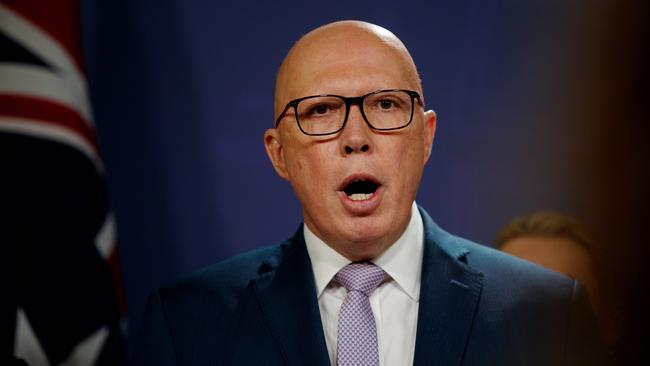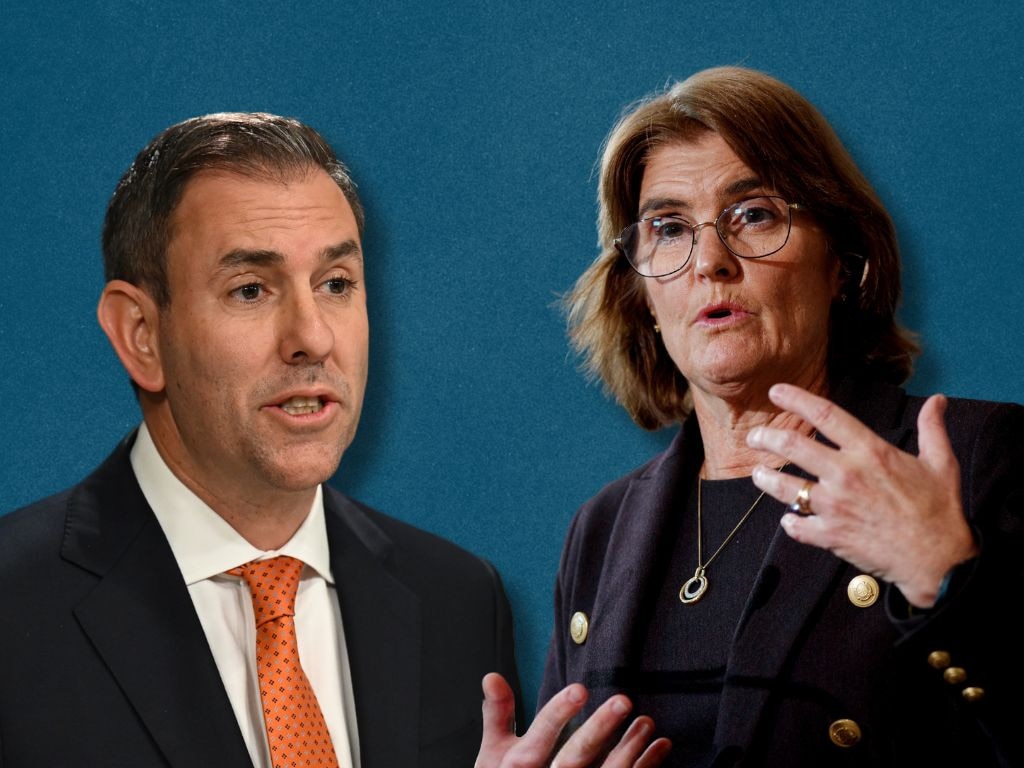Now is not the time to be stupid: cost of living to dominate the next election campaign
The vulnerable issue for the Albanese government is the painful fact that the cost of living for ordinary Australians has risen considerably under its watch.

In the 1992 US election campaign, Bill Clinton’s adviser, James Carville, famously reminded his staff not to forget the critical issue.
“It’s the economy, stupid,” he said. The weakened state of the economy, he argued, was the key message which needed to be constantly drilled home to voters.
Clinton went on to win the election against incumbent George Bush in November that year.
With an election expected in Australia in the next year, one could make the same argument about the cost of living.
The vulnerable issue for the Albanese government is the painful fact that the cost of living for ordinary Australians has risen considerably under its watch.
Many forces behind it have been out of its control: rising inflation in Australia and around the world has led to higher interest rates, energy costs have risen in the wake of the Russian invasion of Ukraine and tensions in the Middle East, and Covid-19 created supply chain disruptions which have been inflationary.
The need to re-open Australia’s borders after Covid has led to higher migration, which in turn has increased pressure on rents and housing. Onshoring, friendshoring and moves to diversify supply chains have also added to global cost pressures.
The government was elected on a clear platform of taking action against climate change and diversifying the economy away from coal. It’s a policy which has broad electoral support in theory, as seen by the rise in powers of the Greens and the pro-climate change Teals in the 2022 election.
But the fact is that the policies needed to achieve the transition – and changes such as the decommissioning of coal-fired power stations and the need for more renewable energy with the added cost of new electricity transmission lines – are adding to the cost burdens on ordinary Australians.
Opposition Leader Peter Dutton has already identified that the key issue for the next election as “the cost of living, stupid”.
The government was elected on a promise that it could oversee Australia’s energy transition including a move to net zero by 2050 without blowing out energy costs.
That was always a fantasy: in the short-term coal-fired energy is still the cheapest. But it is hard to sell a policy which says “this is really going to hurt your hip pocket, but it needs to be done”.
Questioned on this, Albanese has resorted to the argument that when he meant power prices would be cheaper under Labor, he meant over the longer term with his belief that renewable energy would be cheaper than the alternative.

Dutton’s nuclear energy policy is aimed at presenting a clear alternative to the government policies.
Whether it is any cheaper or even achievable remains to be seen. Even small nuclear plants are expensive and take a long time to build.
But Dutton is selling the idea that with his very different strategy he can bring down emissions to net zero by 2050 without having a fast exit from coal-fired power.
By taking the foot off the renewable pedal – or at least the goal for 2030 – using a less costly combination of coal, renewables, and gas, Dutton is selling the idea of a cheaper energy policy in the medium term.
It’s a bold policy which could well divide the electorate.
But Dutton is banking on the fact that Australians are hurting from the rising cost of living and that he can sell his policy as providing a more palatable answer cost wise.
At the Australian’s Energy Nation summit in Sydney, government ministers were pressed on the issue of their election promises of cheaper power.
“Labor was elected on a promise that it would reduce household electricity bills by $275 but instead Australians are now paying among the most expensive bills in the world,” opposition climate change and energy spokesman Ted O’Brien said recently.
Speaking at the conference, O’Brien said his support for the Dutton nuclear option was based on the view that it was a cheaper option, all things considered, than the current government’s policies.
Pressed at the conference about whether the government would drop the $275 energy price promise pledged before the last election, Climate Change Minister Chris Bowen described it as a modelling exercise done against a more benign outlook for energy prices two years ago.
“Every modelling is an exercise,” he said. “We’ve had the outbreak of the war and the impacts that would have. We’re not walking away from our ambition to reduce energy prices by getting more renewables into the system.
“And we are seeing the impacts now of getting more renewables into the system and the gas caps that we have put in place as a result of the war in Ukraine.
“It’s not the answer to all those problems, but it is showing the direction of travel, that for the first time in a long time, energy prices are coming down.”
The $300 rebates for household energy bills across the year and other measures announced in the budget were an explicit acknowledgment that the cost of living is a live political issue.
Further evidence that the cost of living is a hot-button issue with ordinary Australians came in the latest survey of attitudes to retirement in Australia by US fund managing giant Vanguard, which moved into the Australian superannuation sector 18 months ago.
The survey showed that the rising cost of living and inflation was the biggest single worry of working-age Australians in their financial outlook for retirement.
Cost of living and higher inflation was listed by retirees as the second-most important worry for retired Australians after their health issues.
Both working and retired Australians had increased the amount of money they believed they needed to live on in their retirement since the last survey.
It is not quite “the economy, stupid” in the next election campaign as the unemployment rate has remained surprisingly low despite a weakening economy. But the cost-of-living issue – not any ideology – will dominate the election as ordinary Australians vote with their hip pocket nerve.








To join the conversation, please log in. Don't have an account? Register
Join the conversation, you are commenting as Logout